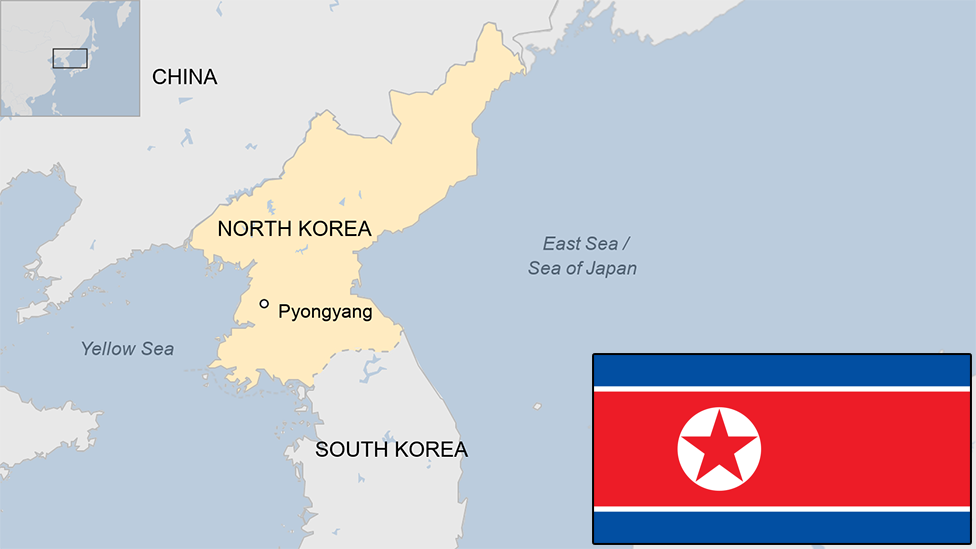A quiet revolution in North Korea
- Published
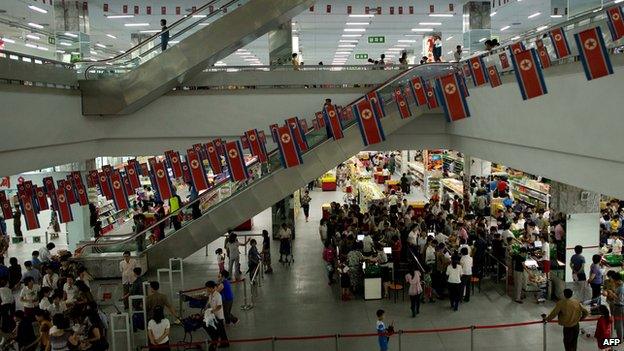
A quiet revolution may be under way in North Korea.
The loud one we know about - it's been going on since the Soviet Red Army wrested the northern half of the peninsula from Japanese control in 1945. The Kim dynasty has espoused communism and shouted its merits ever since.
But now, surprisingly, it seems that capitalism is growing in the country - quietly, of course.
Kim Jong-un has looked north over the Chinese border and decided that market reforms along the lines of those allowed by his comrades in Beijing may allow the preservation of the current structure but with rising living standards.
Stage one was to realise that after the famine of the 1990s, agricultural production had to be increased. Accordingly, Kim Jong-un's father, Kim Jong-il, allowed farmers to keep part of the produce of their land. They could form teams and till soil for their own benefit. What they reap so they shall keep. The state takes some but that is the same with any state - it's called "taxation".
Stage two is now under way in what is called the "May 30 Measures" because they were passed without fanfare in May last year.
What makes a private enterprise?
Prof Andrei Lankov of Kookmin University in Seoul told the BBC that there are now enterprises which are capitalist in all but name. Technically, they are owned by the state but in fact they are run by a manager or managers who maximise profit and keep much of what they make.
"These enterprises have never been accepted by the government. Officially they don't exist. But many are rather big. There are private bus companies, private coal companies and private gold companies."
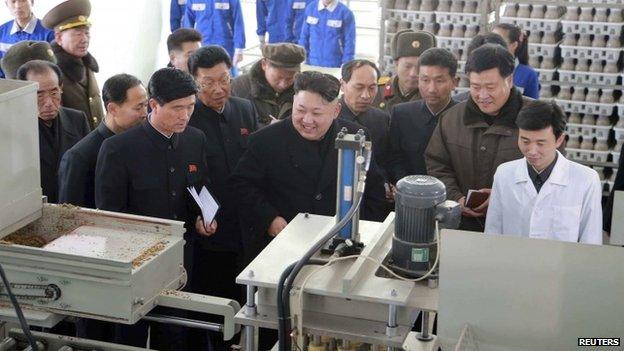
Kim Jong-un visited the newly built Pyongyang City Mushroom Farm last week; the country suffered from famine in the 1990s
Prof Lankov cites a coal enterprise he knows, run for profit by a manager who hires and fires and borrows to sink new shafts. When he exports, invariably to China, he keeps a cut and gives the state a contribution.
"They have a government agency which gets a right to sell coal to China but they have no idea about mining or how to start a mine, so they make a deal with a local rich man or woman - but in this case a man - who invests his own money.
"The manager hires miners. He hires engineers. He pays for the equipment and he starts to run the mine. The coal which is produced is exported to China. And the profits are shared between the state, which provides a quasi-legal cover because on paper this mine is owned by the state, and the actual owner who makes all daily managerial decisions. Is it a private enterprise? For me it is."
'Unlikely idea'
He says that capitalism in North Korea is definitely growing: "The North Korean government is beginning to admit that there is no way to run an efficient economy but to rely on private initiative."
He says that under the May 30 measures, starting from this year, the industrial managers who are technically public officials will be given as much freedom as many private managers would have in regular market capitalist economy.
"They will be allowed to procure raw materials from the market. They will be allowed, and indeed required, to sell stuff on the market and their major obligation is to provide a certain amount of payment, which is not that different from paying your income or corporate tax."
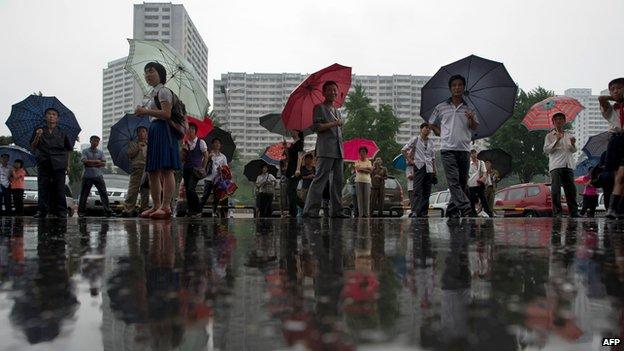
Prof Lankov says that capitalism in North Korea is growing
There was even a Pyongyang Business School that foundered relatively recently when relations between the two Koreas went from cold to frozen.
It was set up by Felix Abt, a Swiss businessman representing Western companies there. "It looks like an unlikely idea but when we started developing it in 2002, we saw that there were food shortages," he says.
"Many workers had no jobs and so no income, so we thought we should help teach the managers to adapt to the new environment and become more efficient. They had to learn what they hadn't learnt before: how to make a marketing strategy; how to deal with customer service; finance."
Engage or shun?
But the big question is: how do you balance any benefits of engagement against supporting an unpleasant regime.
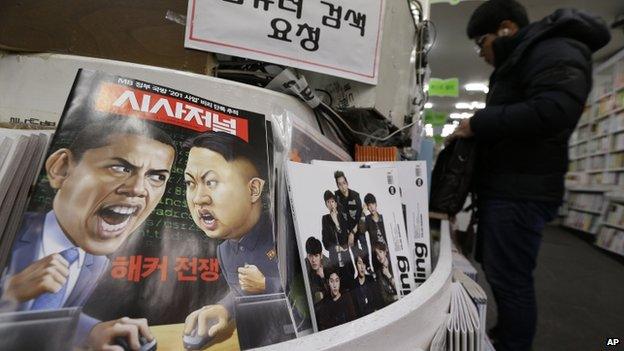
Relations between the US and North Korea have worsened in recent weeks
"If you have no presence in the country you cannot influence anything for the better," says Felix Abt. "I have seen that you can talk with people and influence them and help changes minds.
"What's the alternative to engagement? You want to nuke them, you want to isolate them so people starve to death? The best thing in my view is to support market forces to invest and engage. Market forces are the strongest agent of change. We should work with everybody. We should work with ordinary people and with the government."
Calculated risk
The difficulty for the regime in Pyongyang has been twofold. Firstly, the famine from 1994 to 1998 illustrated the deficiencies of the economic system, just as "Mao's famine" did.
Secondly, the affluence of the outside world is becoming increasingly difficult to close off from view. South Korea was painted as, in the words of Northern official agencies, "America's whore", and its economic achievements devalued.
But now China is rising and Chinese tourists flock to North Korea in their tens of thousands, flaunting all the signs of affluence that tourists do - the cameras and designer labels.
Kim Jong-un's calculation may be that emulating the Chinese way of marrying political control with economic easing will not bring the regime crashing down.
It is a gamble.
For more on this story, listen to Business Daily on BBC World Service at at 08:32 GMT and 15:06 GMT on Thursday, 15 January.
- Published1 October 2014
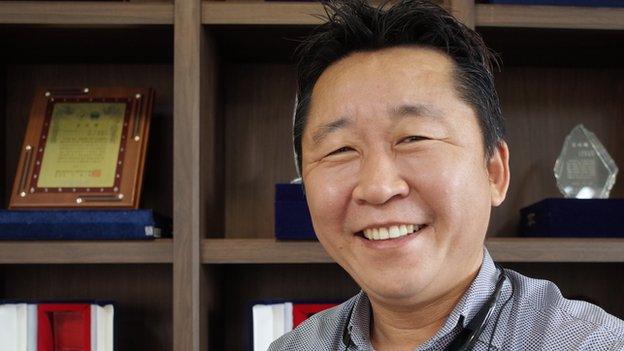
- Published19 July 2023
